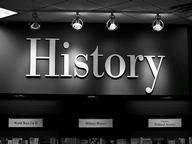Quiz Answer Key and Fun Facts
1. Democracy, meaning rule by the people, originated in which ancient Greek city state?
2. The Althing, founded in 930, is the parliament of which Nordic country?
3. "The ballot is stronger than the bullet" is a saying attributed to which American President?
4. Which country became, in 1893, the first to give adult women the vote?
5. Before the advent of the secret ballot, British parliamentary elections could be disreputable affairs. Which novel by Charles Dickens features an account of an election in the town of Eatanswill?
6. British elections became more sedate with the introduction of the secret ballot. From which part of the then British Empire was the ballot box imported?
7. Elections often take place on a specific day of the week. On which day are elections to the European Parliament held?
8. In many countries elections are contested between left-wing and right-wing political parties. Where did the terms "left-wing" and "right-wing" originate?
9. Which controversial British politician wrote a book called "If Voting Changed Anything, They'd Abolish It"?
10. The statistical study of voting patterns takes its name from the Greek for "pebbles". What is it called?
Source: Author
dellastreet
This quiz was reviewed by FunTrivia editor
stedman before going online.
Any errors found in FunTrivia content are routinely corrected through our feedback system.

